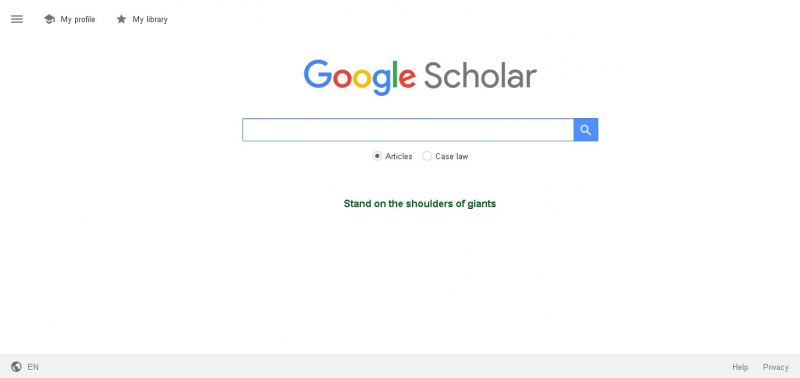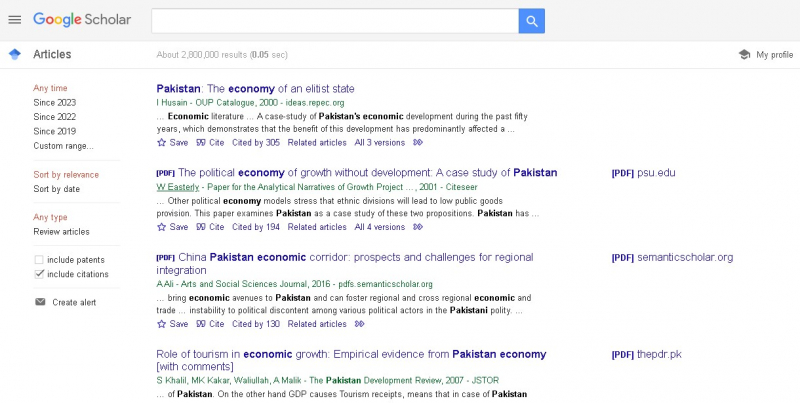Google Scholar
Google Scholar is a web search engine that is designed to search scholarly literature, including articles, theses, books, and conference papers, among other sources. It was launched by Google in November 2004 and is freely accessible to anyone with an internet connection.
Google Scholar uses the same search technology as Google's main search engine, but it focuses on academic and scholarly content. It indexes scholarly literature from a wide range of sources, including academic publishers, professional societies, online repositories, universities, and other websites that provide scholarly content.
Users can search for academic and scholarly content using a range of search queries, including author names, article titles, keywords, and publication names. Google Scholar provides various features to help users find relevant content, including citation tracking, alerts, and related articles.
Google Scholar offers a variety of tools that can benefit researchers beyond its search capabilities. These include citation tracking, which allows users to assess the impact of an article or author by tracking how many times it has been cited by other scholarly works.
Users can also set up alerts to receive notifications when new articles matching their search criteria are published and explore related articles to find additional relevant content. Google Scholar may also provide access to full-text articles and offer metrics such as the h-index, which measures an author's productivity and impact based on their citation count.
Pros:
- Provides a vast collection of scholarly articles, theses, books, and conference papers.
- Offers advanced search options and citation metrics.
- Includes a "Related Articles" feature to discover additional relevant sources.
Cons:
- Some content may not be freely accessible.
- Quality control varies, and not all sources are peer-reviewed.
- Limited advanced search functionality compared to specialized databases.
Website: https://scholar.google.com/












